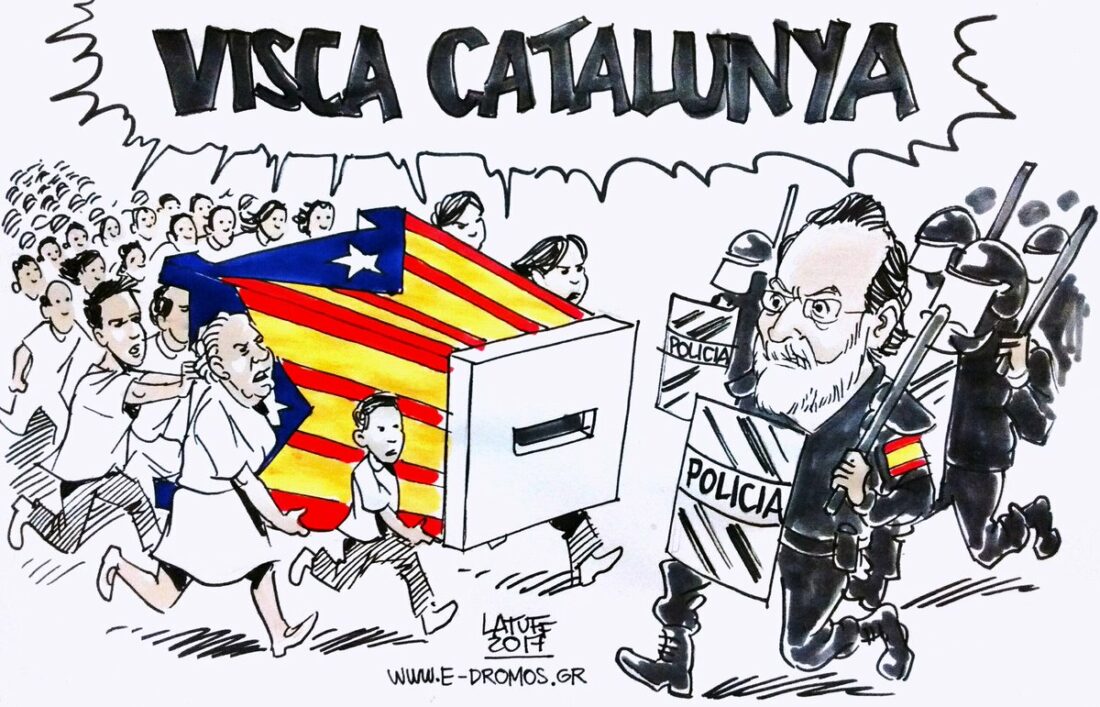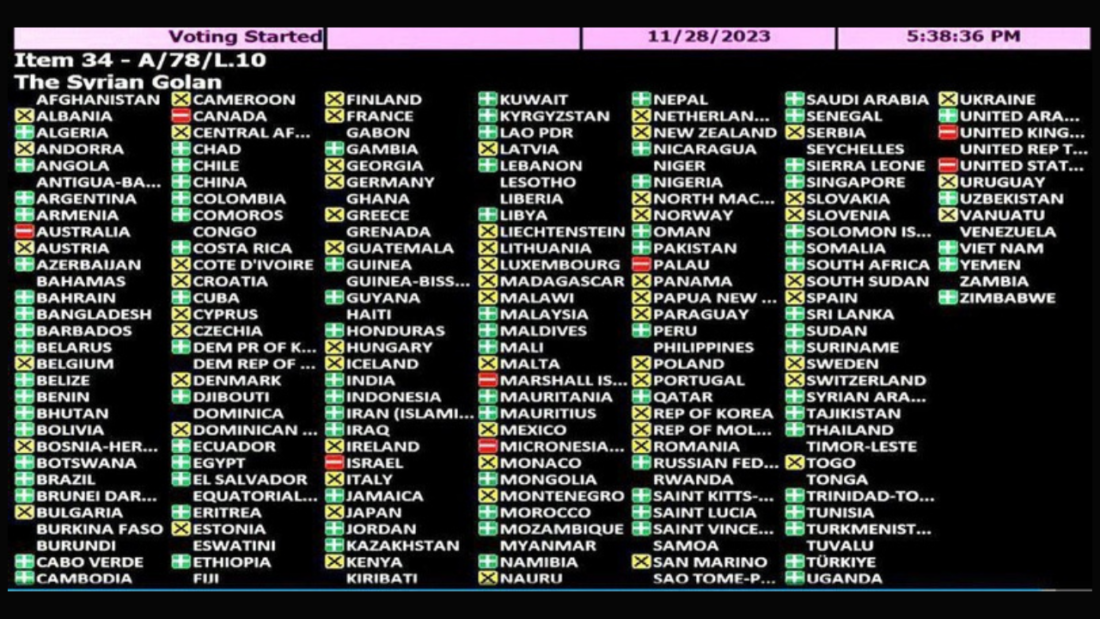
CATALONIA: Who does this conflict benefit?
Article by Vera Polycarpou, Head of the International Relations and European Affairs Bureau, member of the C.C. of AKEL
Sunday 8th October 2017, “HARAVGI” daily newspaper
Last Sunday, 1st October, was marked by the bloody violent attacks launched by the police forces of the central government of Spain against citizens in Catalonia during the referendum held on the independence of this autonomous region of Spain. It was the culmination of a collision course with the Central Government of the right-wing People’s Party opting on the one hand for a forcible obstruction of the referendum, and on the other the autonomous government of Catalonia, that is the Generalitat, insisting on its right to conduct it.
The images themselves, with more than 800 wounded people of all ages and sexes, speak for themselves about the brutality with which the oppressive forces treated citizens. We all strongly denounce this behaviour. The interest thing is that the Spanish Prime Minister was adamant that “corresponding violence” was used. (You see this was violence within the borders of its own country and not in some “underdeveloped non-democratic” country). It took five days for Enric Millo, the official representative of the Spanish government in Catalonia, to express his regret about the injuries and to apologize. This in itself speaks volumes of the intransigent stand of the Rajoy Government, the forces and economic interests it represents. The Generalitat, on the other hand, is also responsible for the path of conflict and the sharp rise in the nationalist sentiments of the Catalans in favour of the demand for independence from Spain.
According to the figures released by the organizers of the referendum, the participation level reached 43% with 2,044,038 votes cast and with 90% voting in favour of independence.
It would perhaps be helpful to take a quick look at history itself. Catalonia had gained the greatest degree of autonomy in its contemporary history during the Second Spanish Republic that existed from 1931 to 1939. With the outbreak of the civil war in 1936 the democratic and republican government expressed its position on th3e side of the democratic forces. With the imposition of the fascist Franco regime, Catalonia lost all autonomy and, together with the rest of the country, was plunged in the brutal dark years of the dictatorship.
With Franco’s death and from then on, Catalonia once more gained a degree of autonomy through the 1978 Constitution which defined Spain as a constitutional monarchy. However this autonomy, although it restored some rights, such as the use of the Catalan language, never reached those levels attained during the Second Republic. The current state of affairs had been approved in a referendum and entered into force in 2006, but it continued to be questioned and challenged, given that the Constitutional Court abolished many of the rights, primarily of an economic nature, in 2010. This is probably where the decision of the two sides to intensify the conflict centres on: that is, who will reap the economy of Catalonia
Catalonia has taken full advantage of the degree of economic autonomy it had, together with the exploitation of its geographical position in the Mediterranean Northeast side of Spain to achieve significant economic, industrial and scientific development and growth.
As far as the interests of the ruling economic powers in Catalonia are concerned, they clash with those of Spain since there are strong disagreements over the percentage rates of the richest of the autonomous region’s contribution to the central government. This is precisely where the feelings of the Catalans were exploited to an extreme degree and driven to the expression of the demand for independence, without any consideration of the real economic and social needs of the population of both Catalonia and Spain as a whole; a Spain which continues to be plagued by mass unemployment, first and foremost among the young generation, and where families continue to lose their homes because of the foreclosures imposed.
To conclude this short text, I believe it would be useful to refer to the positions of the Communist Party of Spain (PCE) and the United Socialist Party of Catalonia (PSUCviu, which do not support any unilateral actions, neither the application of Article 155 of the Spanish Constitution (namely, the suspension of Catalonia’s autonomy), nor for the proclamation of independence.
PCE and PSUCviu consider that all the people must be mobilized together to support democracy in the country. They argue for a federal and democratic state expressing solidarity and taking into account the recognition of the right of self-determination and the safeguarding of social rights throughout the entire state.
Because the peoples must not fall into any nationalist and chauvinist traps.




